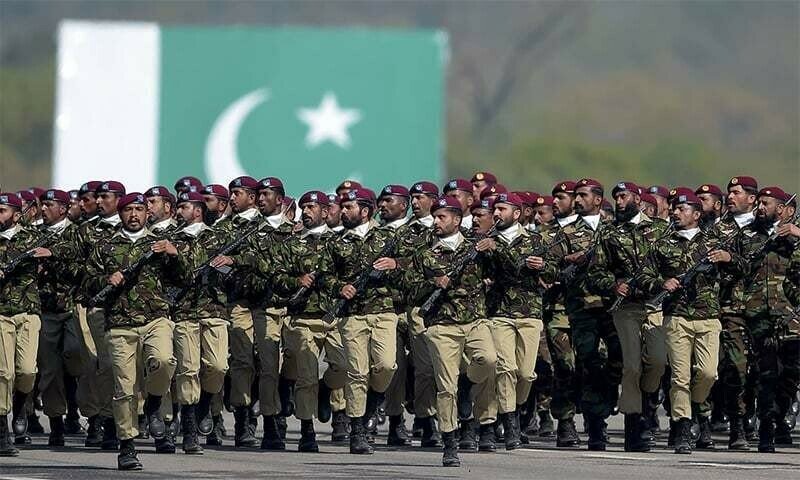Pakistan’s Defense Budget Set to Surge by 20% to Rs. 2,550 Billion in Upcoming Fiscal Plan
Pakistan’s defense budget for the upcoming fiscal year 2025-26 is expected to rise sharply by 20%, reaching a staggering Rs. 2,550 billion, according to reliable sources within the government. This projected increase marks another substantial boost in defense spending and will be fairly distributed among the three branches of the armed forces—the Army, Navy, and Air Force—as well as various inter-services departments.
Continuing the Upward Trend in Defense Spending
Last year’s defense allocation stood at Rs. 2,122 billion, which itself was a 17% jump from the previous year’s Rs. 1,854 billion budget. The consistent upward trend highlights the government’s commitment to strengthening Pakistan’s military capabilities amid a challenging regional security environment.
In terms of economic scale, the defense budget for 2024-25 accounted for approximately 1.71% of Pakistan’s Gross Domestic Product (GDP). Analysts expect this proportion to remain steady or slightly increase with the new allocation, reflecting the government’s priority to maintain robust defense preparedness without severely straining the national economy. Defense Budget
Equitable Distribution Across Military Branches
The Rs. 2,550 billion allocation for 2025-26 will be strategically shared across the Army, Navy, and Air Force, with each branch receiving funds aligned with its operational and modernization needs. In addition, inter-services departments, which coordinate joint military efforts and logistics, will also benefit from this increased funding. Defense Budget
Military experts point out that this budgetary boost is critical not only for sustaining personnel salaries and pensions but also for advancing modernization programs, including procurement of new equipment, technology upgrades, and infrastructure development. Defense Budget
Government Employee Salaries and Pension Increases
Alongside defense spending, the government is reportedly planning a salary increase of 10% for government employees in the upcoming budget. This move is aimed at helping civil servants cope with inflationary pressures and rising living costs. Defense Budget
Pensioners, too, are expected to receive a hike, with estimates suggesting an increase ranging from 7.5% to 10%. This adjustment will provide some financial relief to retired government employees, many of whom face economic challenges due to inflation and increasing healthcare expenses. Defense Budget
Tax Relief Prospects Remain Limited
Despite these positive developments for government employees and the military, major tax relief for the general public seems unlikely in the upcoming budget. A key factor behind this limitation is the stance of the International Monetary Fund (IMF), which has expressed concerns about maintaining the current Rs. 1.2 million annual income tax exemption threshold. Defense Budget
The IMF reportedly does not support keeping the exemption limit at this level, arguing that it restricts government revenue generation. If the government accedes to IMF’s recommendation, the tax exemption limit may be lowered, potentially bringing more middle-income earners into the taxable bracket. Defense Budget
This shift could present a significant challenge for many Pakistanis who currently benefit from the existing exemption threshold. Analysts warn that lowering the exemption may increase the tax burden on a broader segment of society, reducing disposable income and potentially slowing consumer spending. Defense Budget
Balancing Defense Needs and Economic Realities
The government faces the complex task of balancing multiple priorities in the upcoming budget. On one hand, rising defense expenditures are seen as necessary to ensure national security and military readiness in a volatile regional context. On the other hand, salary and pension increases for government employees reflect a commitment to social welfare and economic stability. Defense Budget
However, these spending commitments must be balanced against international financial obligations, particularly with the IMF, which continues to play a significant role in Pakistan’s fiscal management and reform agenda. Defense Budget
Sana Mir Makes History with ICC Hall of Fame Entry – Maryam Nawaz Calls It a Proud Moment
Read this Article Also
Looking Ahead: What to Expect in the Final Budget
The final budget announcement is expected soon, and it will provide a clearer picture of the government’s fiscal strategy. While salary and pension hikes may bring some welcome relief to government employees and retirees, limited tax exemptions and increased defense spending could pose new challenges for the broader public and the economy. Defense Budget
Economists suggest that careful management of expenditures and revenue generation will be crucial to avoid budget deficits and maintain investor confidence. At the same time, the government’s ability to negotiate favorable terms with the IMF will be key to sustaining financial stability.
In conclusion, Pakistan’s 2025-26 budget appears set to prioritize defense modernization and employee welfare, while cautiously navigating economic constraints and external pressures. The coming weeks will reveal how these competing demands are ultimately balanced in the nation’s financial roadmap.




